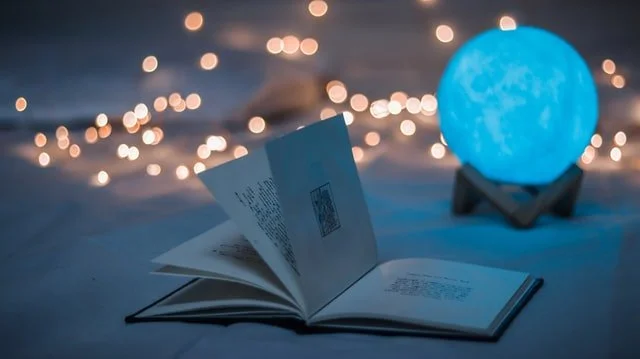"I have a character arc and a theme (I think), but I don't know how to make it into a full story."
I friggin' love this question. And I bet you can relate to the woman who sent it in. Let's call her Janelle.
Janelle wants her memoir to be more than just a series of events. You know people who tell those kinds of stories. "One time... at band camp... blah, blah, blah, blaaaaaaah."
When Janelle says she wants to make her book a full story, she's really saying a full story that means something. That's more than just a bunch of anecdotes or a rambling list of life events.
And I love it because that is what makes a book brilliant.
Whether you're writing a memoir like Janelle, a self-help book, a business guide, or anything else, your book has to mean something. It needs a point of view, a lesson, a thought, a concern, a wish, or a wonder.
Ultimately, that's what we're talking about when we say theme.
What's the theme of your book?
It's the point of view, lesson, thought, concern, wish, or wonder that you leave the reader with once they're done.
When you know your theme, you know how to turn what you want to say into a full story. In a memoir, for example, you start where the theme first came up in your life, you tell the story of exploring that theme in your life, and you wrap it up when you came to an understanding of that theme.
That's kinda abstract, so let's break it down with an example. Imagine your theme is that by challenging yourself in the wilderness, you learn to trust yourself in the office.
You'll start with that time you screwed up that big project at work, and in your desperate misery that weekend, you agreed to go camping with friends, even though you had no idea how to put up a tent.
You'll tell the story of how work life sucked, but you escaped to the mountains every weekend and challenged yourself to increasingly daring adventures, becoming more confident along the way.
You'll finish by showing how that confidence manifested at work, transforming your career, and end with your first day sitting in the corner office after your massive promotion.
You need theme to round out your story
I want Janelle—and you, if you can relate—to go back to theme. Janelle thinks she understands hers, but I'm going to push her—and you—to dig deeper. When you really know your theme, it becomes easier to round out your story.
Let's break it down again because this is important:
Start where the theme first came up in your life.
Then tell the story of exploring that theme in your life.
Wrap it up when you came to an understanding of that theme.
If you have a random, sprawling, uninspiring story of things that happened, go back to theme. Get clear on it. And you'll figure out how to make yours a story that actually means something.
You got this.
Thanks,
Liz "Gimme Meaning" Green
Editor, Book Coach, and Ghostwriter
Green Goose Writing
You might also like…
Scared your book will be a flop?
"I’m having trouble getting started. I tend to pour a lot of energy into something and often have it flop. I want to put myself into things that have good potential." This is an excellent question because of course you're having trouble getting started if, in the back of your mind, you're thinking, What's the point? It's just going to be a flop, anyway. Read more…
Waiting for a writing breakthrough
Are you sitting comfortably? I want to tell you a story about Penny, who found a way to finally get the words flowing on her book. She learned that it doesn't matter how long you've been stuck—one lightbulb moment can get you moving. Here’s her story…. Read more…

